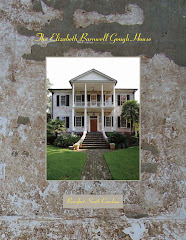.jpg)
When the Civil War began, Clara Barton was working as a copyist in the US Patent Office in Washington. Already a social pioneer, she was one of only four women employed by the US government at the time and the only one not filling in for a husband serving in the Union army.
Shocked by the horrific lack of care for wounded following the Battle of Bull Run, she was determined to deliver better and more immediate care to soldiers. Soliciting needed medical supplies, foods and clothing on her own, she also defied the restrictive social conventions for women and personally brought nursing care for the first time to wounded in the field.
Often dangerously close to battle lines and remarkably heedless of her own safety, Barton tended the wounded following the Second Battle of Bull Run, Antietam and Fredricksburg. In-field nursing would not be provided by the Sanitation Commission (the official source of nursing care during the war) until five months later. Jealous of its official status, the Commission frowned on Barton as an independent agent and sought to bar her from their hospitals.
The search for a venue where she could serve brought Barton to South Carolina and ultimately to Morris Island where she helped with the wounded following the assault on Battery Wagner.
Although the hospitals in Beaufort were under the auspices of the Sanitary Commission, Barton managed an unofficial visit to Hospital #10. She was acquainted with Col. Higginson commander of the 1st SC Volunteers and the visit may have been at his urging or at the invitation of Regiment Surgeon Dr. Ruggers. Conducting her unofficial tour was another remarkable woman at Hospital #10, Susie King Taylor. Impressed by Barton’s attention and kindness to the black wounded, Susie King Taylor would later write “I honored her for her devotion and care for those men.”20
Later, with government backing, Barton would bring to public attention the atrocities at Andersonville Prison. Still later, she served with the German Red Cross in the Franco-Prussian War, as a nurse during the Spanish American War and is credited with the founding of the American Red Cross.
20 Susie King Taylor, A Black Woman’s Civil War Memoirs, Markus Wiener Publishing, New York, Seventh Printing, 1999, page 67
Please note that the material in this blog is copyrighted. It is not to be reproduced without my specific written permission.
.jpg)
